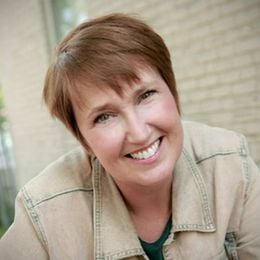LGBTQ Bereaved Spouses Seek Solace
Community members facing loss are leaning on each other for support
After surviving a heart attack and a cancer diagnosis, Carol Riddell feared being kept alive by machines more than she feared death itself. The retired teacher had made her end-of-life wishes clear to her wife Debbie Joffe: no extraordinary measures.
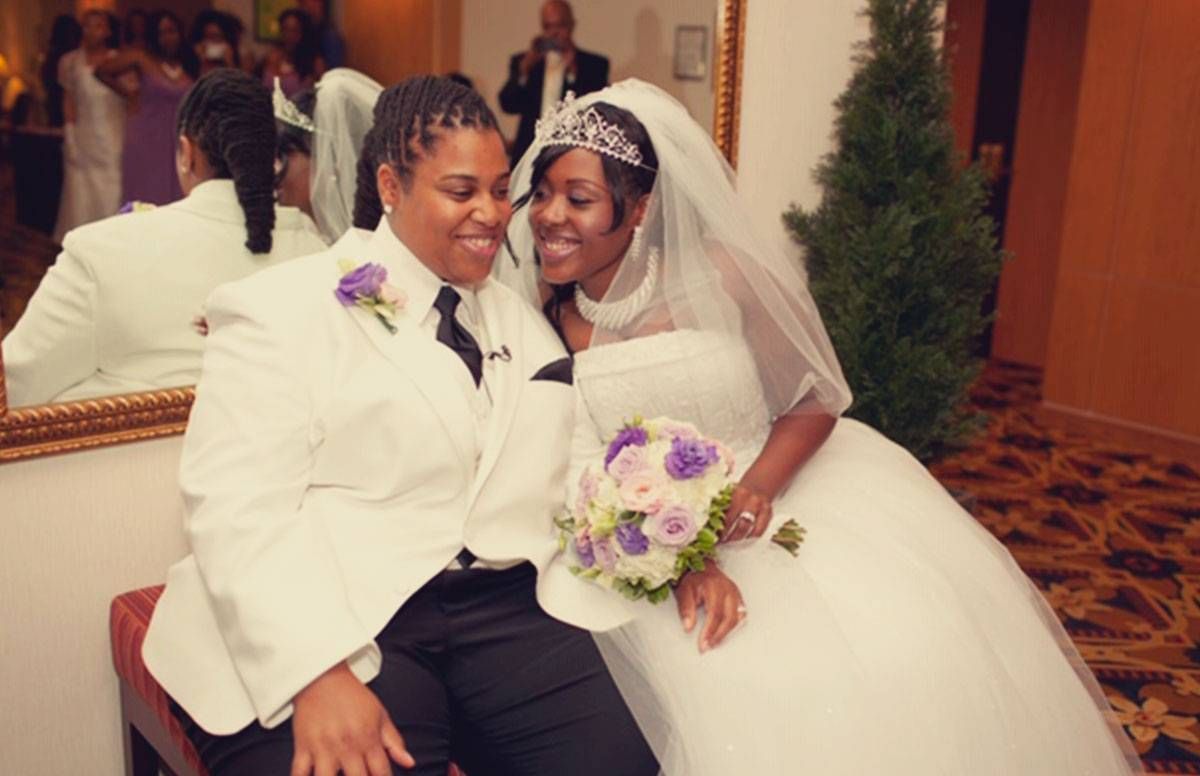
Two years ago, hospitalized after a complicated surgery, Riddell had to be intubated. Her blood pressure dropped and her kidneys began to fail.
“Her system was tanking. Her sister and I were there and we knew she couldn’t come back from this,” said Joffe, 64, who lives in Cincinnati, and had been Riddell’s partner for 30 years and her wife for four.
“I got into bed with her and started talking about our beautiful memories so she would have only pleasant thoughts,” Joffe said. ”She was getting morphine but she heard; she squeezed my hand. I helped her pass. I fulfilled my promise to her.”
Joffe is still learning how to live with her loss, but her marriage makes her legal status as a widow clear.
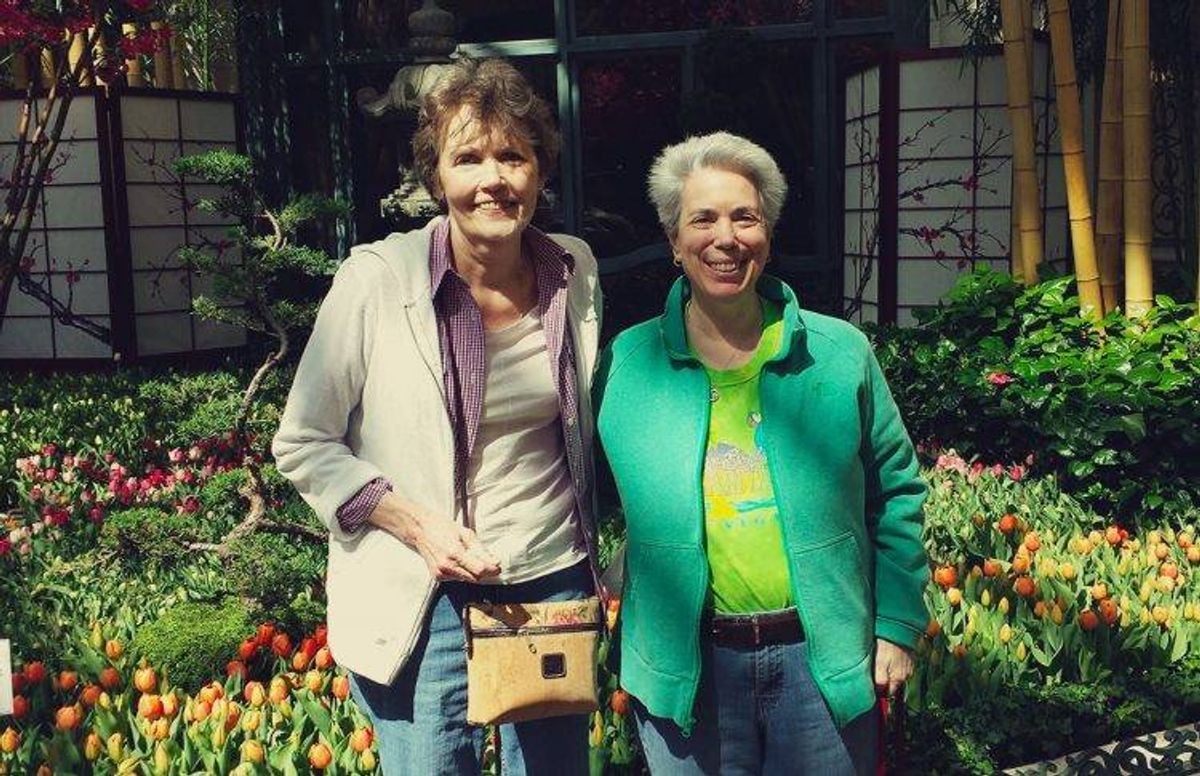
Researching the Effects of Widowhood
While committed LGBTQ partnerships are nothing new, the first generation of bereaved LGBTQ spouses is now becoming widows and widowers, a designation they can claim through the advent of same-sex marriage.
"She was smart and beautiful and sarcastic," said Williams. "We thought we had all the time in the world."
In 2003, Massachusetts became the first state to legalize same-sex unions. The majority of U.S. states had followed suit by the time the Supreme Court struck down all state bans on same-sex marriage in 2015, allowing gay couples to wed in every jurisdiction.
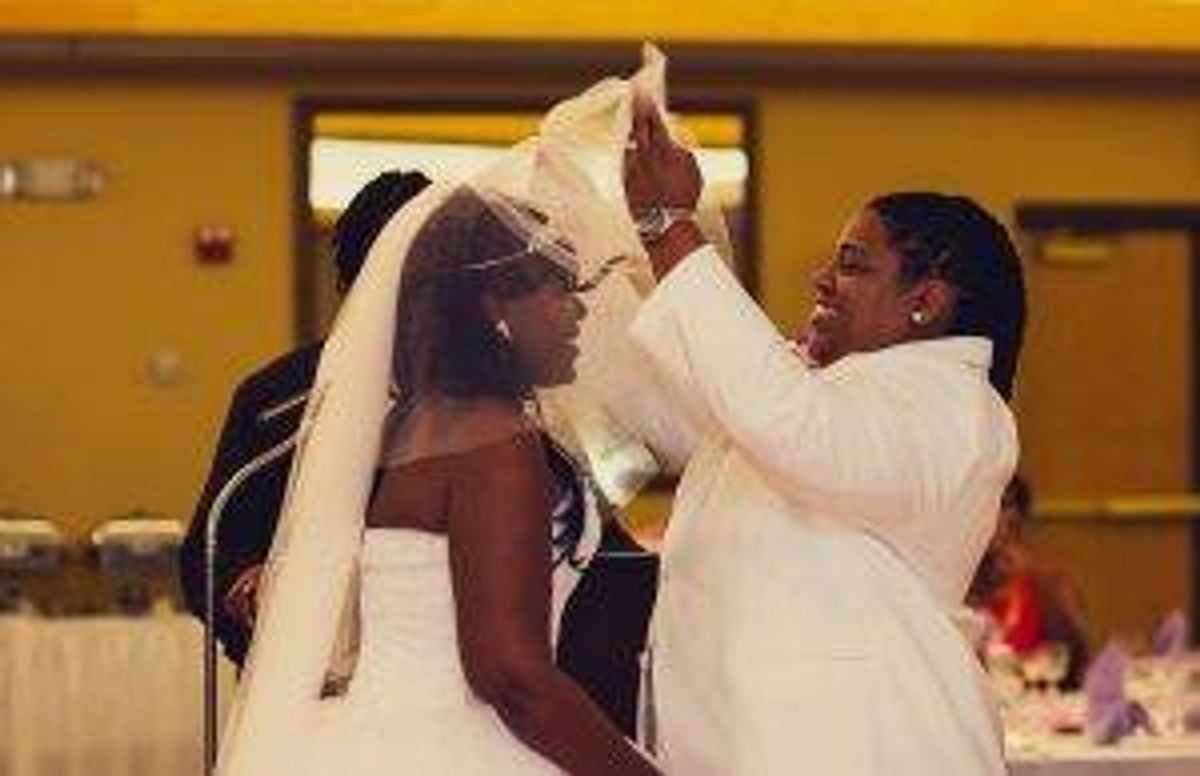
“LGBTQ partners have been invisible minorities. When they’ve suffered what we know is one of the most stressful losses a person can experience, it hasn’t been socially acknowledged. Disenfranchised grief exacerbates the negative experiences of loss,” said Florida State University graduate student Jessica Noblitt. She is studying the psychological impact of LGBTQ partner loss in people 50 and older.
“The assumption is that with marriage, the stigma and barriers to support will lessen,” Noblitt said.
Academics like Noblitt are now actively investigating the impact of same-sex marriage on LGBTQ widows and widowers, but their work is still in its infancy. Noblitt predicts that research will occupy social scientists for decades.
“The best longitudinal research would follow surviving subjects over years, to see how the effects of widowhood play out,” she said. “There hasn’t been enough time yet to complete that solid research. We need that kind of hard evidence to draw from to understand the specific needs of this population.”
Emerging Resources for the Grieving
Across the nation, resources are emerging for LGBTQ widows and widowers. In New York City, a Meetup group counts almost 200 members. A Massachusetts provider of hospice and palliative care has offered an LGBTQ grief support group. And Soaring Spirits International, a California-based organization for widowed people, will stage its first LGBTQ+-specific event later this month. With workshops, speakers and small group discussions all led by LGBTQ widows and widowers, Soaring Spirits' day-long Camp Widow will address the specific bereavement of surviving spouses and partners of same-sex unions.
“We’ve always been inclusive; our events are for people who lost the person they thought they couldn’t live without. At every camp we have had a few LGBTQ people show up and we saw this was a severely underserved group,” said Michele Neff Hernandez of Simi Valley, Calif.
Hernandez founded Soaring Spirits after she was widowed at 35 when her husband was killed in a cycling accident. Since 2009, some 7,500 bereaved partners and spouses have attended more than two dozen Camp Widow events across North America.
“With marriage, LGBTQ spouses are recognized as widow/ers and next of kin; it gives them a better start into a difficult journey," said Hernandez.
All Camp Widow events are geared toward helping bereaved spouses find community by fostering face-to-face connections. Following every event, many widowed people go on to form and attend peer-based support groups with others they met who experienced similar losses. Hernandez thinks that will be of particular value to LGBTQ attendees.
“Every LGBTQ person I ever talked to was seeking other widowed people like them,” she said. “There’s something electric about being with others making their way through the same hard thing. Grief is a great connector.”
Support Through Dark Days
Keisha Williams, 39, of Prince George County, Md., went looking for other women who had lost partners and wives and found them on the Lesbian Widows Facebook Group. “These women are my sisters, my tribe. They help me to cope. When it got dark for me, they were there. They remind me to be patient with myself,” said Williams, whose wife LaFawn died in her arms one day before their sixth wedding anniversary. LaFawn had been diagnosed with Hodgkins Lymphoma just weeks earlier.
“She was smart and beautiful and sarcastic,” said Williams. “We thought we had all the time in the world.”
When the two tied the knot in a traditional service in 2012 at the Navy Yard in Washington D.C., LaFawn’s family did not attend the wedding because “they didn't believe in our marriage,” as Williams put it.
Williams was grateful for her legal status as spouse, which allowed her to call the shots for every detail of the final farewell at her wife's funeral.
“Her family wanted to bury her in a dress. That was not who she was; she hadn't worn a dress since she was sixteen. Because we were married, I made the choices,” Williams said. “Her sisters discounted our relationship because they all have husbands. But their sister wanted a wife.”
'Married is Married'
Whether LGBTQ or straight, death brings a mixture of the profound and the mundane for surviving spouses. Even as they begin mourning, they must attend to chores of filing death certificates, arranging for final disposition of the body and managing the estate of the deceased.
But LGBTQ widows and widowers who’ve tied the knot should not have to expend energy fighting for family leave or spousal and survivor benefits, pensions and inheritance, experts say.
"No one wants to worry about homophobia when they are grieving."
“Legally, there’s no difference now; married is married,” said David Rae, a Los Angeles-based Certified Financial Planner who has been married to his husband for five years.
Rae often sees LGBTQ married couples who don’t have the same level of savings as straight couples.
“Before we could marry, many partners didn't plan together, so they missed financial advantages that accrue over time,” he said. “Estate planning is important, especially when there are children. Gay couples are more likely to have a non-biological parent in the mix.”
With his large LGBTQ clientele, Rae is now helping the first of his widowed clients as they work through inheritance plans they made with their spouses. What he sees today is a far cry from work he did with partners whose union lacked legal recognition.
“They had to be very proactive and set up trusts. Without that, a long-lost relative would be put ahead of the person that was loved. A partner not on the lease or mortgage could be looked at as a trespasser,” he said. “We saw how it could decimate the standard of living of the surviving partner.”
Rae notes that while the financial services industry tends to be conservative, there are a growing number of gay-friendly advisers for couples as they draw up their wills and other documents and then execute them after a death.
“It’s less stressful when you’re with supportive professionals,” he said. “No one wants to worry about homophobia when they are grieving.”
Grieving Without Recognition
Much of the previous academic research about bereavement in LGBTQ couples focused on the huge number of gay men whose partners were lost to HIV/AIDS in the 1980s.
“I was closeted then, but a lot of guys my age had that horrible experience and are still living with that loss,” said Jeff Davis, 63, a truck driver from Phoenix. His partner died by suicide in 2013 before they could have legally married.
“I was with John for sixteen years and he was the most important person in my life. Not a day goes by that I don't think about him,” Davis said. “I wouldn’t wish this on my worst enemy.”
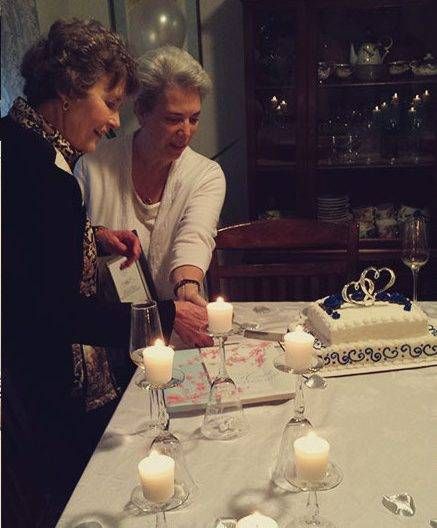
Davis was estranged from his family of origin because of his sexual orientation and he, too, has turned to other gay men for solace. He is the administrator of a Facebook group for gay men who have lost spouses or, like him, partners.
Davis believes that gay partners whose loss predates marriage grieve without the same recognition of legal widows and widowers.
“You didn't get support at the time of the loss and beyond. People who I thought were good friends have said, 'You’re not over that yet?' With a same sex couple, never married, the relationship doesn't seem to mean as much,” Davis said. “Other men in the Facebook group say they hear things like that all the time, too.”
A Shared Resting Place
Several times a month, Debbie Joffe makes the five-minute drive to visit the parklike cemetery where her wife Carol Riddell's cremated remains are buried.
“I’m Jewish, so I follow the tradition of putting a pebble on the marker whenever I go, to show I was there,” Joffe said.
Before she died, Riddell picked their final resting spot and selected the boulder that marks their plot. Riddell’s name, birth and death date are printed on a plaque attached to the stone. Someday a second plaque will be added, with Joffe’s name and information. At the bottom of the boulder is a third plaque. It reads simply, “Love Wins.”
“We were the first in our group of friends to marry and it was a big deal. We were always thrilled to call each other wife,” Joffe said. “It was so fabulous to be able to do that.”
